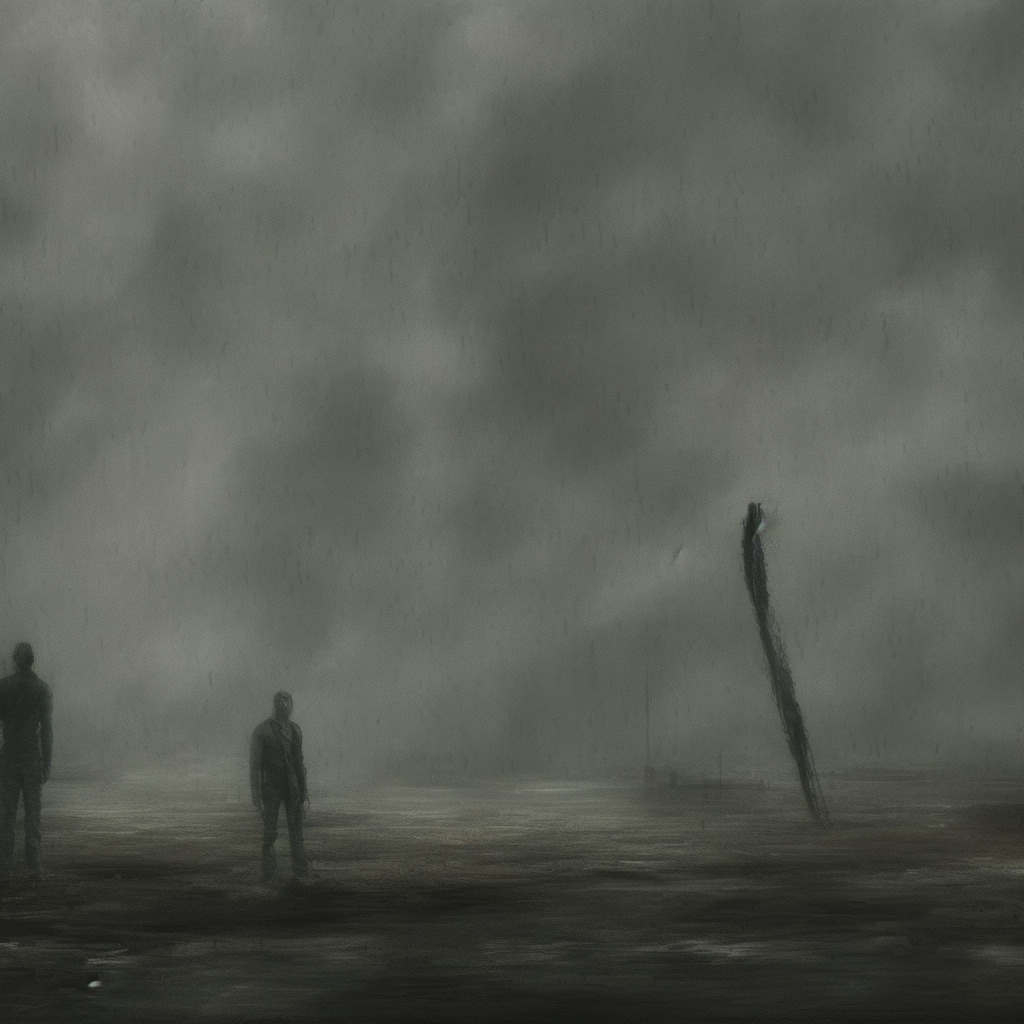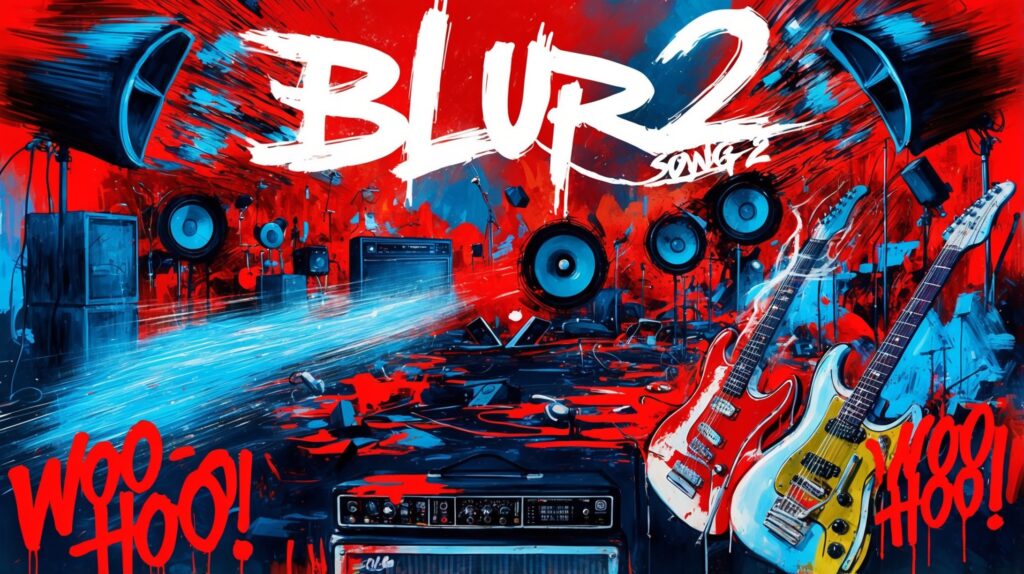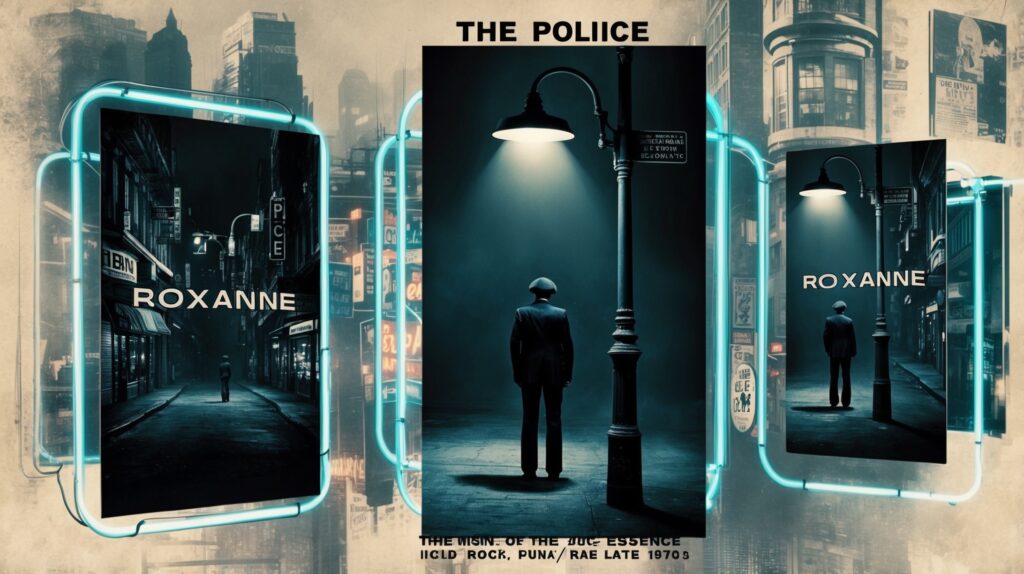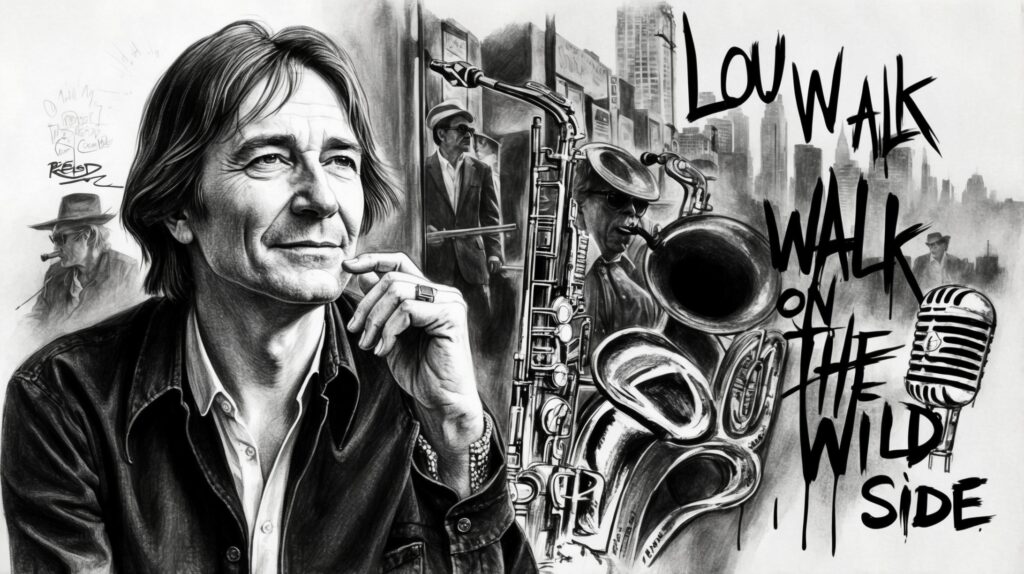🎸Did you know? “Fell on Black Days” was inspired by Chris Cornell’s fear of the unknown! Soundgarden’s haunting tune still rocks 27 years later! 🤘🖤 #Soundgarden #90sGrunge #TriviaTuesday Read about it: tinyurl.com/35wkjh46
Unraveling the Intricacies of Soundgarden’s Timeless Appeal
Dive into Soundgarden’s timeless allure as we dissect their emotionally-charged masterpiece “Fell on Black Days” and the band’s lasting impact on alternative rock and grunge.
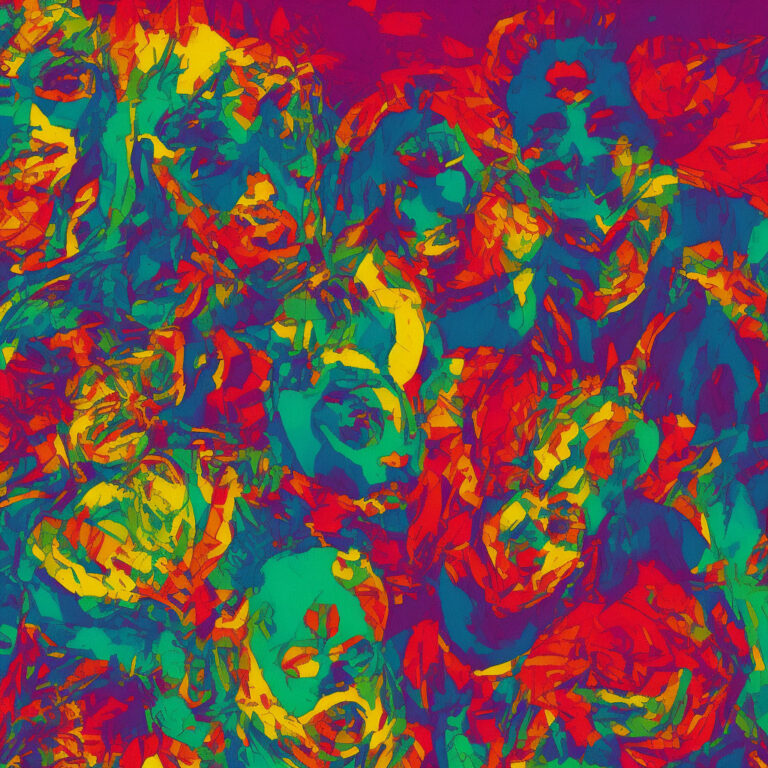
Few bands can match the sheer impact and influence that Soundgarden has had in the world of alternative rock and grunge. Formed in Seattle in 1984, the band was among the trailblazers of the grunge movement along with other iconic bands like Nirvana, Pearl Jam, and Alice in Chains. Soundgarden’s lineup consisted of the late, great Chris Cornell on lead vocals and rhythm guitar, Kim Thayil on lead guitar, Ben Shepherd on bass, and Matt Cameron on drums.
One of the band’s most enduring and powerful songs is “Fell on Black Days” from their fourth studio album, 1994’s “Superunknown.” This dark, somber track encapsulates the introspective and emotionally charged nature of Soundgarden’s music. The song’s lyrics address themes of depression, hopelessness, and the inescapable feeling of falling into a dark void – all delivered through Chris Cornell’s soul-wrenching vocals and the band’s signature heavy guitar-driven sound.
Throughout their career, Soundgarden has garnered a plethora of accolades and awards for their contributions to the music industry. Among the most notable of these achievements are their two Grammy Awards for the songs “Black Hole Sun” and “Spoonman,” both hailing from the very same “Superunknown” album. This masterpiece of an album was not only a critical success but also a commercial one, reaching the top of the Billboard 200 chart and achieving quintuple platinum status in the United States. Moreover, the band was inducted into the prestigious Guitar Center RockWalk in 2013, several years before Cornell’s tragic and untimely death in 2017.
Despite their numerous accomplishments, Soundgarden has faced their fair share of criticism. One such instance is the accusation that their sound became more commercial and less experimental with the release of “Superunknown.” While it is true that the album brought them into the mainstream, this critique arguably overlooks the band’s ongoing commitment to pushing the boundaries of their songwriting and musicianship.
In conclusion, Soundgarden’s “Fell on Black Days” serves as a prime example of the band’s captivating and timeless appeal. They may be one of the most significant bands of the 1990s, but the power of their music transcends mere nostalgia. Soundgarden has left an indelible mark on the history of rock music that will continue to resonate with fans and musicians alike for generations to come.
Charting the Course of a Classic
“Fell on Black Days” – A timeless Soundgarden classic that conquered charts and hearts, epitomizing the golden era of ’90s alternative rock.
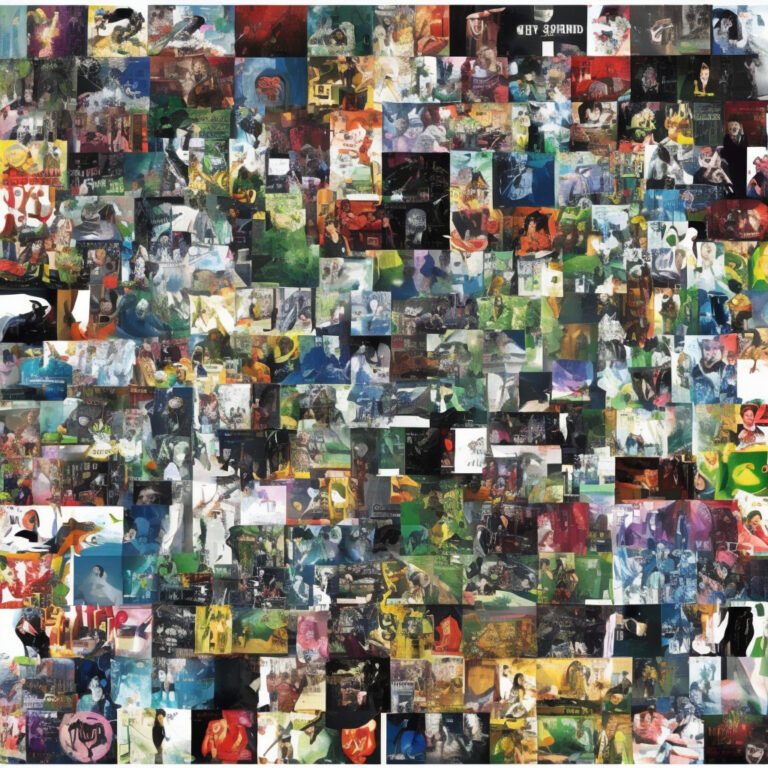
When it comes to chart success, “Fell on Black Days” holds its own in the storied discography of Soundgarden. Released on May 4, 1994, as the fifth single from their fourth studio album, ‘Superunknown’, the song made a notable impact on the music charts during its heyday.
Initial chart positions for “Fell on Black Days” were impressive, as it debuted at number 13 on the Billboard Modern Rock Tracks chart. It didn’t take long for the track to gain momentum and climb the charts, eventually reaching its peak position at number 4. This success solidified the song’s place among Soundgarden’s most well-known and beloved tracks.
In addition to its strong showing on the Modern Rock Tracks chart, “Fell on Black Days” also made a dent in the Billboard Mainstream Rock Tracks chart. The song debuted at number 21 and eventually peaked at number 10, further showcasing the song’s wide appeal and crossover potential.
As if its chart success wasn’t enough, “Fell on Black Days” has gone on to amass a remarkable number of accolades and appearances. It has been featured in numerous “best of” lists, cementing its status as a fan-favorite and a staple of 1990s alternative rock. This track’s enduring legacy is a testament to the staying power of Soundgarden’s music, and it continues to resonate with listeners to this day.
So while “Fell on Black Days” may not have reached the very top of the charts, its impressive initial debut, peak positions, and enduring popularity serve as a testament to the song’s impact on the world of alternative rock. Soundgarden’s legacy continues to thrive, and “Fell on Black Days” will always hold a special place in the hearts of fans and music aficionados alike.
Exploring the Depths of “Fell on Black Days”
Whatsoever I’ve feared has come to life
Whatsoever I’ve fought off became my life
Just when every day seemed to greet me with a smile
Sunspots have faded, and now I’m doing time
Now I’m doing time
‘Cause I fell on black days
I fell on black days
Whomsoever I’ve cured, I’ve sickened now
And whomsoever I’ve cradled, I’ve put you down
I’m a searchlight soul they say, but I can’t see it in the night
I’m only faking when I get it right
When I get it right
‘Cause I fell on black days
I fell on black days
How would I know
That this could be my fate?
So what you wanted to see good has made you blind
And what you wanted to be yours has made it mine
So don’t you lock up something that you wanted to see fly
Hands are for shaking, no, not tying
No, not tying
I sure don’t mind a change
I sure don’t mind a change
Yeah, I sure don’t mind, sure don’t mind a change
I sure don’t mind a change
‘Cause I fell on black days
I fell on black days
“Fell on Black Days” by Soundgarden is known for its dark and introspective lyrics. Delving into the theme of depression, the lyrics touch on the struggle of grappling with one’s inner demons, feeling trapped, and dealing with the consequences of one’s actions.
The 1990s were an era of great change and uncertainty, with the end of the Cold War and the rise of technology impacting the lives of many. The grunge movement, which Soundgarden was a part of, can be seen as a reflection of the turmoil experienced by the youth of that time. The lyrics of “Fell on Black Days” resonate with the struggle to find meaning and purpose in a rapidly changing world.
Focusing on the line “Sunspots have faded, and now I’m doing time,” the metaphor of sunspots evokes a sense of something once bright being dulled and replaced by darkness. This imagery perfectly captures the feeling of being weighed down by the burdens of life.
In the chorus, the repetitive declaration “I fell on black days” serves as a reminder that we all face dark times in our lives, even when it feels like we’re the only ones struggling. The acknowledgment of these black days provides a sense of solidarity and understanding for those who feel alone in their battles.
The lyrics, “So don’t you lock up something that you wanted to see fly / Hands are for shaking, no, not tying,” serve as a reminder to let go of the constraints that hold us back and to reach out to others for support. The notion of change is also prevalent in the song, with the lines “I sure don’t mind a change” suggesting that sometimes, change can be a positive force that helps us move past the darkness.
Overall, “Fell on Black Days” captures the essence of a generation grappling with uncertainty and struggling to find their place in a rapidly changing world. The lyrics serve as a reminder that even in our darkest moments, we are not alone, and that change can be a positive force for growth and self-discovery.
A Closer Look at the “Fell on Black Days” Music Video
Dive into the haunting visual masterpiece of Soundgarden’s “Fell on Black Days” music video, where raw emotion and artistic vision collide in a striking black and white tribute to the band’s introspective and heavy themes.
The music video for “Fell on Black Days” is a perfect visual representation of the dark and heavy themes Soundgarden is known for exploring. Directed by Jake Scott, son of legendary filmmaker Ridley Scott, the video creates a visually striking and evocative complement to the song’s lyrics and mood.
Shot in stark black and white, the artistic approach taken by Scott lends an added layer of depth to the song’s introspective theme. The video predominantly features the band performing the song in a dimly lit room, interspersed with close-up shots of lead singer Chris Cornell. This seemingly simple setup effectively highlights the raw emotion and vulnerability evident in Cornell’s delivery.
The production of the “Fell on Black Days” music video was relatively low-budget, with the primary focus on achieving a visually impactful and moody aesthetic. Scott’s decision to shoot in black and white not only enhances the song’s solemn message, but also serves as a practical solution to achieve a visually captivating result while keeping costs to a minimum.
Apart from the official music video, fans have also created their own tributes and interpretations of “Fell on Black Days.” A quick search on YouTube will reveal numerous fan-made videos, as well as live performances and acoustic renditions, showcasing the enduring popularity and impact of the song.
The “Fell on Black Days” music video stands as a testament to the power of simplicity and artistic vision in conveying the emotional intensity of a song. Jake Scott’s directorial choices and Soundgarden’s raw, unfiltered performance create a memorable and haunting visual experience that perfectly encapsulates the essence of the track.
The Maestro Behind “Fell on Black Days”: Chris Cornell
As a devoted fan of Soundgarden, you’re likely no stranger to the genius of Chris Cornell. Best known as the lead vocalist and rhythm guitarist for the band, Cornell’s songwriting prowess is evident in many of their most iconic tracks. Beyond “Fell on Black Days,” Cornell penned other notable hits, such as “Black Hole Sun,” which earned the band a Grammy for Best Hard Rock Performance in 1995. Other fan favorites like “Spoonman,” “Burden in My Hand,” and “Blow Up the Outside World” showcase his versatility in crafting powerful lyrics and memorable melodies across various genres. In addition to his work with Soundgarden, Cornell’s extensive career included forming the supergroup Audioslave and releasing solo projects, where he continued to amaze listeners with his distinctive voice and songwriting abilities.
A Legacy Etched in Black
Defining the 90s grunge era, Soundgarden’s “Fell on Black Days” continues to cast its shadow over the music world, with its haunting melody and thought-provoking lyrics inspiring countless artists and captivating audiences across various forms of media.
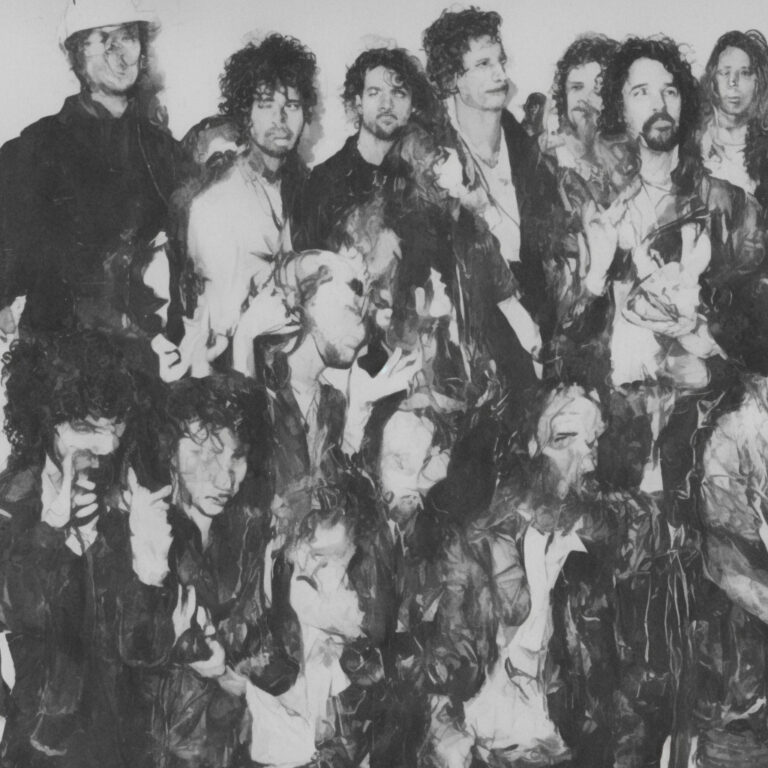
“Fell on Black Days” has stood the test of time as one of Soundgarden’s most recognizable tracks, earning accolades and distinctions throughout the years. Released in 1994 as part of their fourth studio album, “Superunknown,” the song quickly gained widespread recognition, becoming a defining track of the 90s grunge era. It peaked at number four on the Billboard Mainstream Rock Tracks chart and ended 1995 as the 58th most played song on modern rock radio in the United States.
The song’s haunting melody and thought-provoking lyrics have cemented its place in popular culture, making appearances in various forms of media. “Fell on Black Days” has been featured in movies such as “Out of Bounds” (1996), where it served as an impactful addition to the film’s dark atmosphere. In the realm of television, the song made its way into the hit series “Homicide: Life on the Street” in a 1997 episode titled “The Twenty Percent Solution.” Fans of video games might recognize the track from the game “Road Rash 3D” (1998), where it contributed to an adrenaline-fueled gaming experience.
As testament to the song’s enduring legacy, “Fell on Black Days” has inspired several cover versions over the years. One of the most notable renditions comes from American rock band “Finger Eleven,” who performed a heartfelt acoustic cover in 2007. Meanwhile, singer-songwriter William DuVall, best known as the vocalist for Alice in Chains, delivered his acoustic take on the track during an appearance on SiriusXM in 2016. Most recently, American rock band “Halestorm” covered the song as part of their 2017 EP “ReAniMate 3.0: The CoVeRs eP,” showcasing the enduring influence of Soundgarden and their iconic track.
In addition to these covers, the impact of “Fell on Black Days” can be felt across the music industry, with countless artists citing the song and Soundgarden as major influences on their own work. As we continue to celebrate the legacy of this timeless track, it’s clear that the darkness of “Fell on Black Days” will continue to cast its shadow over the music world for years to come.
Breaking Down the Musical Structure
“Fell on Black Days” is an interesting track that showcases Soundgarden’s unique musical style and influences. The song is set in the key of D minor, which is often associated with feelings of sadness or melancholy, and the band employs a rather unconventional time signature of 6/4. This time signature choice adds an extra layer of complexity to the song and is one of the reasons why it stands out among other alternative rock tracks from the 1990s.
The intro of the song features a clean guitar riff, composed of arpeggiated chords that follow a Dm – Bb – F – Gm progression. This instantly sets the mood for the song, as the guitar tone and chord progression evoke a sense of unease and darkness. As the song progresses into the verse, the electric guitar switches to a crunchier, overdriven sound, with power chords that follow the same progression as the intro. The bass guitar and drums join in, complementing the guitar’s rhythm and adding depth to the song.
The tempo of “Fell on Black Days” is relatively slow, sitting around 68 beats per minute (BPM). This slow tempo adds to the song’s somber and introspective atmosphere, giving the listener a sense of the emotional weight carried by the lyrics. Chris Cornell’s powerful and dynamic vocal performance also plays a significant role in conveying the emotional intensity of the track. His vocals range from soft and vulnerable during the verses to a more aggressive and passionate delivery in the choruses, further emphasizing the song’s theme of internal struggle and despair.
One of the most intriguing aspects of “Fell on Black Days” is the guitar solo, which makes use of a wah-wah pedal to create a unique and haunting sound. The solo follows a D Dorian mode, which is a scale derived from the D minor scale, but with a raised sixth note. This choice of scale adds a sense of tension and unease to the solo, fitting perfectly with the song’s overall theme.
In terms of production, “Fell on Black Days” features a raw and organic sound, with each instrument clearly audible in the mix. The drums have a natural and spacious sound, while the bass and guitars provide a solid and powerful foundation for the song. Chris Cornell’s vocals are placed prominently in the mix, ensuring that the emotional impact of his performance is not lost on the listener.
Overall, “Fell on Black Days” is a masterclass in songwriting and arrangement, showcasing Soundgarden’s ability to seamlessly blend complex musical structures with emotive and impactful lyrics. The song’s unique time signature, chord progression, and production choices make it a standout track in the band’s discography and one that is sure to be remembered by fans and music enthusiasts alike.


